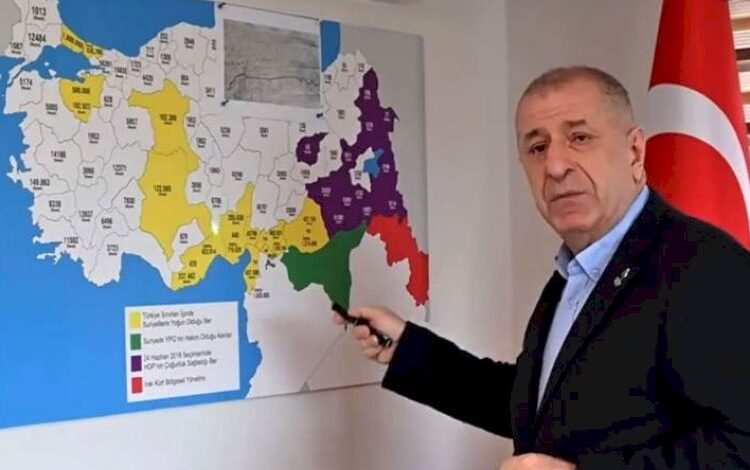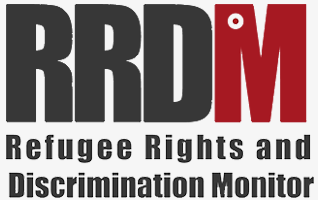A Turkish Party Incites against the Syrians and Compares them to the Israeli Occupation

The incitement campaigns led by Umit Ozdag, the leader of the far-right “Zefar” party that leads the campaigns against Syrians and foreigners, entered a new phase of incitement when he presented a “distorted” analogy between the presence of Syrian refugees in Turkey and the beginnings of Israel’s occupation of the Palestinian territories.
Ozadag published a picture of a map of historical Palestine showing the stages of Israel’s control of the Palestinian territories from small areas prior to 1948 to the occupation of nearly 90 percent of the area of historical Palestine, and alongside it a picture of Turkey divided in colors highlighting the areas where Syrian refugees are present in large numbers.
Ozdag wrote: “If you look at these two maps carefully, you will see that Turkey is gradually becoming like Palestine, the Palestinians had sold their lands saying (nothing will happen), Turkey is now going through a similar process, the Zafar party (the party led by him) is the one who resists turning Turkey into a A new Palestine, and victory will be for the Turkish nation.”
Ozdag’s post received different reactions, and while its supporters from the far-right circulated widely, journalists and tweeters criticized the different methods used by Ozadag to incite refugees and sow discord between them and the citizens. They sold their land,” claiming that he is promoting false and distorted information for the sake of incitement only.
Well-known Turkish journalist Hosni Mahli commented on Ozdag’s publication by saying: “Mr. Ozdag, the Palestinians did not sell their lands, even when the establishment of Israel was announced in 1948. The percentage of Jews owning the land did not exceed 7 percent, and they obtained these lands from the English and the Ottomans or obtained them from feudal families. Not Palestinian, if you want, I will send you documents that prove that.” Journalist Hosni Mahli is a follower of the Palestinian cause and has books on the history of Palestine.
In recent months, Umit Ozdag escalated his harassment and racist speeches against refugees, describing them as a danger and threat to Turkey and its future in an unprecedented discourse on Turkish political life that prompted many to compare him to the French politician Eric Zemmour, who was seeking to reach the French presidency by adopting an extremist racist discourse against refugees and Muslims in country.
In August, Turkish parliamentarian Umit Ozdag announced the establishment of a political party called the “Zefar Party” that feeds on anti-refugee, taking advantage of the escalation of internal tension over the file of Syrian and Afghan refugees in an unprecedented way, as the unwanted politician in the country takes extreme positions described as “Racism” towards refugees, a file that is believed to be the most prominent driver of Turkish voters’ attitudes in the upcoming elections.
For months, almost daily, Ozdag has been publishing on his personal Twitter page, which is followed by nearly 1.7 million people, writings, videos and speeches inciting refugees.
Ozdag was not satisfied with his racist speeches and writings against refugees, but also intensified his field tours in the areas inhabited by refugees in different Turkish provinces, where he shoots inflammatory videos and conducts dialogues with refugees in a manner described as hostile and racist, amid widespread calls for the Turkish authorities to intervene to stop Ozdag’s increasing harassment of refugees.
About 3.6 million officially registered Syrian refugees live in Turkey, and it is believed that hundreds of thousands of others are not officially registered, and according to the latest official statistics, nearly 180,000 Syrians have obtained Turkish citizenship, and there are no official statistics confirming the outcome mentioned by Ozadeg that nearly 900,000 Syrians have obtained citizenship. .
Ozdag’s origins are always highlighted by tweets, as some documents showed that he comes from a family whose origins belong to the Caucasus region of Central Asia and who immigrated to Turkey.




